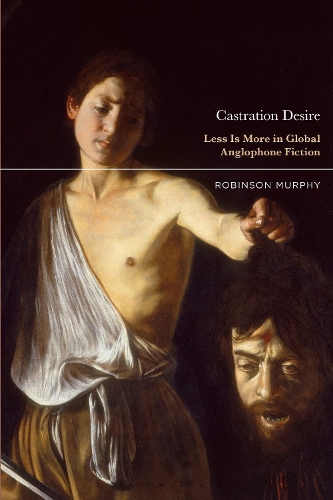
Castration Desire: Less Is More in Global Anglophone Fiction
(Hardback)
Available Formats
Publishing Details
Castration Desire: Less Is More in Global Anglophone Fiction
By (Author) Prof. or Dr. Robinson Murphy
Bloomsbury Publishing USA
Bloomsbury Publishing USA
11th January 2024
United States
Classifications
Tertiary Education
Non Fiction
Comparative literature
Literary studies: fiction, novelists and prose writers
Gender studies: men and boys
823.0099171241
Physical Properties
Hardback
208
Width 152mm, Height 229mm
Description
Theorizes an alternative form of masculinity in global literature that is less egocentric and more sustainable, both in terms of gendered and environmental power dynamics. As the #MeToo movement made all too clear, we require new tools for imagining alternative masculinities. Enter Castration Desire: Less Is More in Global Anglophone Fiction, which examines an array of contemporary novelists and filmmakers who are emblematic of a transnational phenomenon that Robinson Murphy calls castration desire. Figures such as Japanese-British Kazuo Ishiguro, Irish-Canadian Emma Donoghue, Sri Lankan-Canadian Michael Ondaatje, South Korean filmmaker Bong Joon-ho, and South African-Australian J.M. Coetzee present privileged characters who nonetheless pursue their own diminishment. Castration Desire examines how, in promulgating through their characters a less egocentric mode of thinking and acting, these transnational artists offer a blueprint for engendering a more other-oriented relationality. According to orthodox psychoanalysis, castration is always negative: to lose the phallus is to lose everything. Against this orthodox account, castration desire offers a less is more model of sustainable relationality on an imminently eco-apocalyptic earth. Additionally, this study extends and develops a zeitgeist that is currently unfolding in critical theory, bringing Leo Bersanis concept of psychic utopia together with Judith Butlers radical egalitarianism, extending their shared critique of individualistic masculinity into the environmental humanities. Castration Desire thereby provides an alternative to rapacious consumption practices. In shifting criticism to a new way of thinking about the phase of literary history we are currently in, it also helps define where literary criticism is now, and where it is headed.
Author Bio
Robinson Murphy is Visiting Assistant Professor of Environmental Studies at Hobart and William Smith Colleges, USA.
